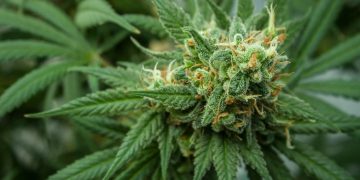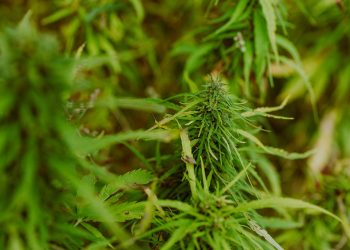[ad_1]
The Green Revolution: Navigating the Ever-Evolving Hemp Farming Laws
As the hemp industry continues to flourish, farmers are facing an ever-evolving landscape of laws and regulations. The Green Revolution has brought about significant changes in the way hemp farming is conducted, with new laws being enacted to regulate the production, distribution, and sale of hemp products. In this article, we will delve into the intricacies of hemp farming laws, how they have evolved over time, and what farmers can do to navigate these regulations effectively.
The History of Hemp Farming Laws
Hemp has a long history of cultivation, dating back thousands of years. In the United States, hemp was widely grown until the early 20th century when it was banned due to its association with marijuana. However, in recent years, there has been a resurgence of interest in hemp due to its numerous industrial and medicinal applications. This has led to the passage of new laws and regulations to govern the cultivation and sale of hemp products.
The Farm Bill and Hemp Legalization
One of the most significant developments in recent years was the passage of the 2018 Farm Bill, which legalized the cultivation of hemp at the federal level. This landmark legislation removed hemp from the list of controlled substances and defined it as an agricultural commodity. This opened up new opportunities for farmers to grow hemp for both industrial and medicinal purposes.
However, while the Farm Bill legalized hemp cultivation, it also established certain guidelines and regulations that farmers must adhere to. These include requirements for obtaining a license to grow hemp, restrictions on THC levels in hemp plants, and regulations for testing and labeling hemp products.
State Laws and Regulations
In addition to federal laws, individual states have also enacted their own laws and regulations governing hemp cultivation. These laws can vary widely from state to state, with some being more restrictive than others. Farmers must be aware of the laws in their state and ensure that they are in compliance with all regulations.
Some states have implemented strict licensing requirements for hemp farmers, while others have more lenient regulations. It is important for farmers to research the laws in their state and understand what is required of them to legally grow hemp.
Navigating the Regulatory Landscape
With the ever-evolving nature of hemp farming laws, it can be challenging for farmers to stay up to date on the latest regulations. However, there are a few key strategies that farmers can employ to navigate the regulatory landscape effectively:
- Stay Informed: Farmers should regularly check for updates on hemp laws and regulations at both the federal and state levels.
- Consult with Experts: Farmers can seek guidance from legal experts or industry organizations to ensure they are in compliance with all regulations.
- Keep Detailed Records: It is important for farmers to keep detailed records of their hemp cultivation activities, including planting dates, seed sources, and harvest yields.
- Invest in Testing: Farmers should invest in regular testing of their hemp plants to ensure they meet the required THC levels and are safe for consumption.
By following these strategies, farmers can navigate the ever-evolving hemp farming laws and ensure that they are operating in compliance with all regulations.
Common Questions about Hemp Farming Laws
Below are some common questions that farmers may have about hemp farming laws:
1. Can I grow hemp without a license?
No, farmers must obtain a license from their state’s Department of Agriculture to legally grow hemp. Failure to do so can result in fines or other penalties.
2. What are the THC limits for hemp plants?
The 2018 Farm Bill sets the THC limit for hemp plants at 0.3% on a dry weight basis. Plants that exceed this limit are considered marijuana and are subject to federal regulation.
3. Can I sell hemp products across state lines?
While hemp cultivation is legal at the federal level, some states have restrictions on the sale of hemp products across state lines. Farmers should check with their state’s laws before selling hemp products outside of their state.
4. Are there restrictions on where I can grow hemp?
Some states have restrictions on where hemp can be grown, such as minimum distance requirements from schools or residential areas. Farmers should be aware of these restrictions and comply with them when selecting a location for hemp cultivation.
5. What are the penalties for violating hemp farming laws?
Penalties for violating hemp farming laws can vary depending on the nature of the violation and the severity of the offense. Farmers may face fines, loss of their cultivation license, or other penalties for non-compliance with hemp regulations.
Conclusion
As the hemp industry continues to grow, farmers must navigate the ever-evolving landscape of hemp farming laws and regulations. By staying informed, seeking expert guidance, keeping detailed records, investing in testing, and complying with all regulations, farmers can ensure they are operating legally and ethically in the hemp industry.
While challenges may arise, the Green Revolution has brought about new opportunities for farmers to cultivate hemp for a variety of purposes. By understanding and adhering to the laws and regulations governing hemp cultivation, farmers can position themselves for success in this burgeoning industry.
Overall, the future looks bright for hemp farmers as the industry continues to expand and innovate, offering a sustainable and versatile crop that has the potential to revolutionize various sectors of the economy.
[ad_2]































































